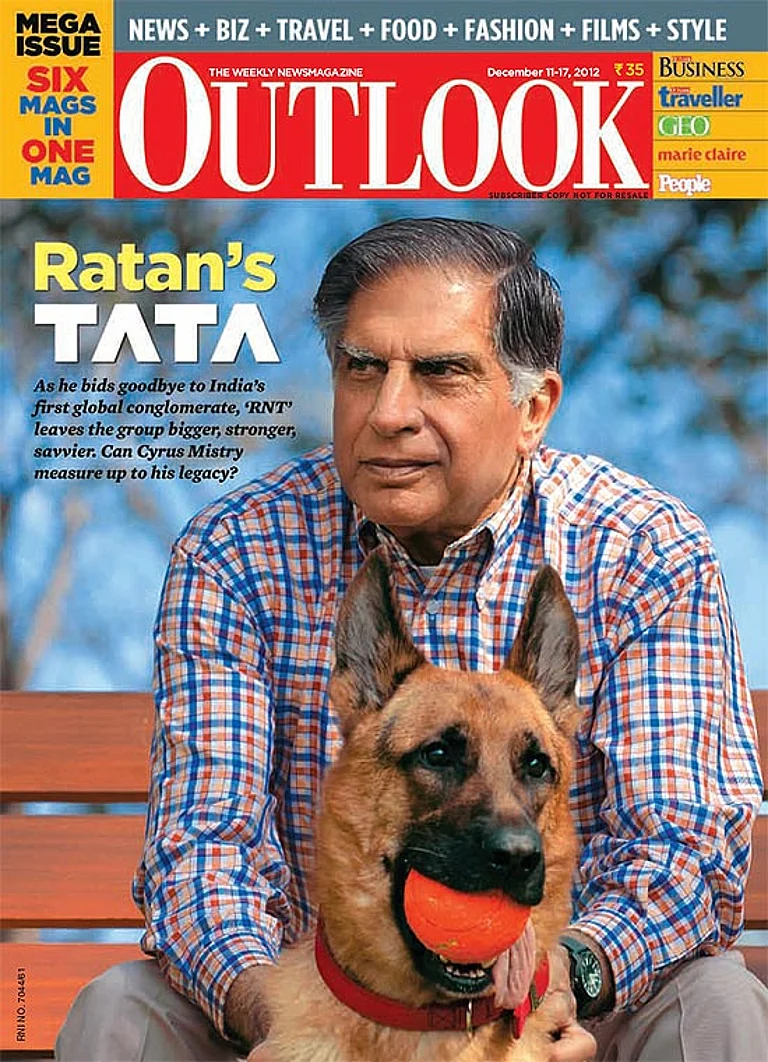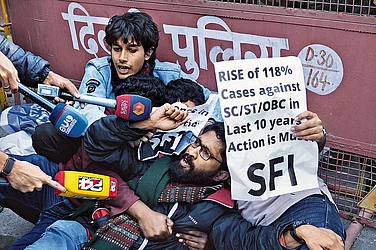Ratan Tata, veteran industrialist and Chairman Emeritus of Tata Sons, has passed away.
Tata Group confirmed the news of his demise through a post on X, stating, "It is with a profound sense of loss that we bid farewell to Mr. Ratan Naval Tata, a truly uncommon leader whose immeasurable contributions have shaped not only the Tata Group but also the very fabric of our nation."
Ratan Tata was reportedly in intensive care at a Mumbai hospital, according to Reuters on Wednesday, citing two sources with direct knowledge of the situation.
On October 7, the 86-year-old addressed health concerns in a social media post, dismissing them as 'rumours.' He assured his followers that there was no cause for alarm and explained that he was undergoing routine check-ups for age-related medical conditions.
Ratan Tata assumed the role of Chairman of Tata Sons in March 1991 and retired on December 28, 2012. Under his leadership, the Tata Group saw substantial growth, with revenues soaring from about ₹14,000 crore in 1992 to an impressive ₹4.75 lakh crore in 2012.
Tata spearheaded several high-profile acquisitions, beginning with Tata Tea's purchase of Tetley for $450 million in 2000. This was followed by Tata Steel's acquisition of the steel giant Corus in 2007 for GBP 6.2 billion, and Tata Motors' landmark purchase of Jaguar Land Rover in 2008 for £2.3 billion.
These three British acquisitions positioned the Tata Group as the largest employer in the UK’s manufacturing sector.
Additionally, under Tata’s leadership, Tata Consultancy Services (TCS) became India’s largest software company, surpassing Infosys and Wipro. With annual revenue nearing ₹2 lakh crores and profits around ₹60,000 crore, TCS employs over 600,000 people from 135 nationalities.
Ratan Tata, known not only for his visionary leadership in business but also for his deep commitment to philanthropy, has earned immense respect both within and beyond the industry. His charitable efforts, primarily through the Tata Trusts, focus on various causes including education, healthcare, rural development, and more.
A significant portion of Tata Sons' profits are directed towards social initiatives, embodying his belief in giving back to society. This dedication to philanthropy has further solidified his legacy as a leader who prioritized the well-being of people alongside corporate success.
A Brief Timeline Of Ratan Tata's Life
1937: Born on December 28 in Bombay (now Mumbai), India, to Naval Tata.
1955: Graduated with a degree in Architecture from Cornell University, USA.
1962: Joined Tata Steel as a management trainee.
1971: Became Director in Charge of the Tata Group’s National Radio and Electronics Company (NELCO).
1981: Appointed Chairman of Tata Industries.
1991: Succeeded J.R.D. Tata as Chairman of Tata Sons.
2000: Led the Tata Group's $450 million acquisition of Tetley Tea Company.
2004: Tata Motors launched the Tata Nano, the world’s cheapest car.
2007: Tata Steel acquired Corus Group for $12.9 billion.
2008: Tata Group acquired Jaguar and Land Rover from Ford for $2.3 billion.
2012: Retired as Chairman of Tata Sons, succeeded by Cyrus Mistry.
2016: Returned as Interim Chairman of Tata Sons following the ouster of Cyrus Mistry.




























